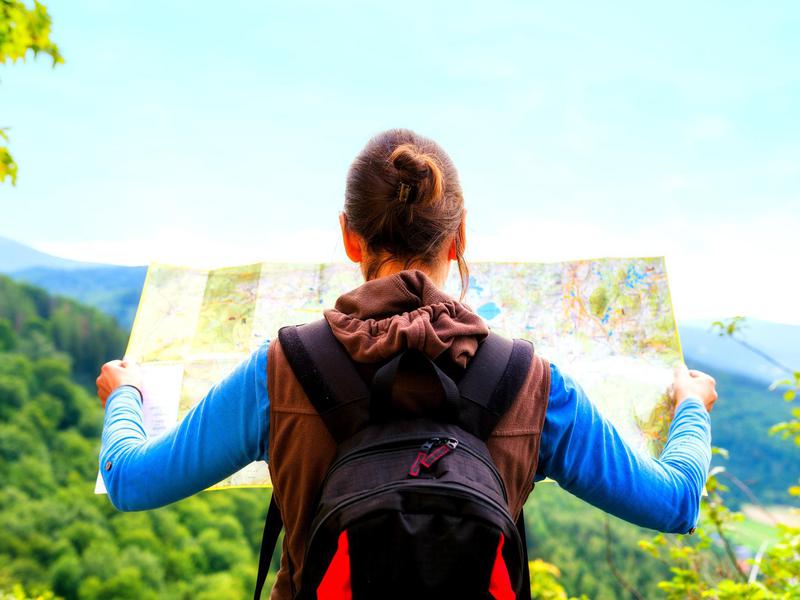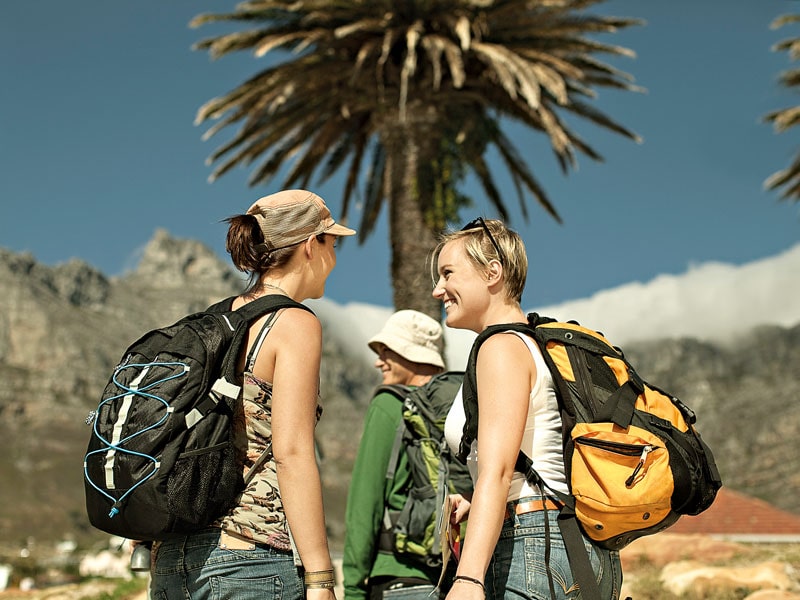According to the dictionary definition, a traveller is anyone who travels, while a tourist is anyone who travels for pleasure. I’m sure you can identify with both terms at the outset, but… are you a traveller or a tourist?
To travel is to move from one place to another using any means of locomotion and to do tourism is to do the activity of travelling for pleasure. A trip can be done by many circumstances while tourism is always associated with leisure and fun.
Both expressions are often used to qualify those who travel with the aim of knowing new places and living new experiences, so from this point of view, being a traveler or a tourist is the same. However, there are many conceptual differences between the two terms, which become apparent in practice when visiting other countries and places.
It is also true that these two words are not at all antagonistic and have in essence much in common, although a somewhat derogatory label seems to have been established to the effect that being a tourist is common and even vulgar. On the other hand, the concept of traveller seems to transfer category and knowledge. No doubt this is not so because we all do tourism when we visit new places and we are all travellers because of the desire to know new experiences.
It is clear that both roles often overlap and neither of them is good or bad. In any case, it is clear that human beings like to assign definitions and clichés that serve above all to judge others.
Having made these remarks, I will relate essential differences to you, although some are almost truly imperceptible, which distinguish one term from the other. If you consider yourself a traveller or a tourist, perhaps these points will help you to clarify.
CHOICE OF ITINERARY, TRANSPORT AND ACCOMMODATION.
Although this may seem very cliché, the tourist leaves with everything planned and perfectly organized from home. Reservations made and confirmed for transportation, hotels and visits to be made. You will try to enjoy an area of comfort during the trip that does not separate you too much from your habits.
The traveller, even if he makes a certain planning of his trip, will worry less about these certainties with the expectation that he will do what the travelling events bring him day by day, since he precisely knows that in order to live his experience he has to leave his daily routine. The encounter with the unusual, the exotic and the surprises will be what will give more value to your trip.
THE PREPARATION OF THE LUGGAGE.
A traveler will prepare his luggage with peace of mind and without excessive foresight. He will take everything necessary, choose the most comfortable clothes, the necessary money and will believe that any unforeseen event will be solved in one way or another. On the contrary, the tourist will prepare his bags with care to make sure that all his needs are covered, going over the clothes, the medicines, the documents, the cameras and everything he needs to carry out his trip with total guarantee.
TRAVELING ALONE OR WITH A COMPANION.
The tourist rarely travels alone. He usually travels with his family, with friends or with similar organized groups, since sharing the experience with others will always be more fun and enriching. On the contrary, the traveler prefers to do it alone or with a very reduced company, as long as it is with people in their own style and in line with their travel philosophy.

THE USE OF TIME AND THE WAY FORWARD.
A tourist will make the most of the time of his visits. He knows that his trip has a limited duration and he will try not to miss anything of his itinerary, following scrupulously the fixed program. The traveller normally faces his journey with flexibility of time and sometimes without a specific date of return. He will try to make his own way, use local transport, interact with the local population and look for places to go by himself, even if they are not necessarily the most recommended ones.
THE TRIP AS A SPECIAL EVENT.
A tourist makes his trip with the maximum illusion, using it as an escape from his routine life, an opportunity to know different things and knowing that the experience will have an end that will remain among his most unforgettable memories. Time is gold and you have to make the most of your vacation. For the traveler, each outing is one more extension of his life because it is intrinsic to his way of being and his way of conceiving existence. For him, a trip can happen at any time and he lives it naturally.
THE ATTITUDE TOWARDS THE NEW AND THE UNKNOWN.
The tourist is amazed at what the journey holds in store for him and is soaked with the cultural differences he sees in order to remember them and narrate them. The traveler will not limit himself to observing but will try to be a direct participant of what he finds on his way. To express it more graphically, the first one will preferably take pictures and the second one will try to live the experience fully.


